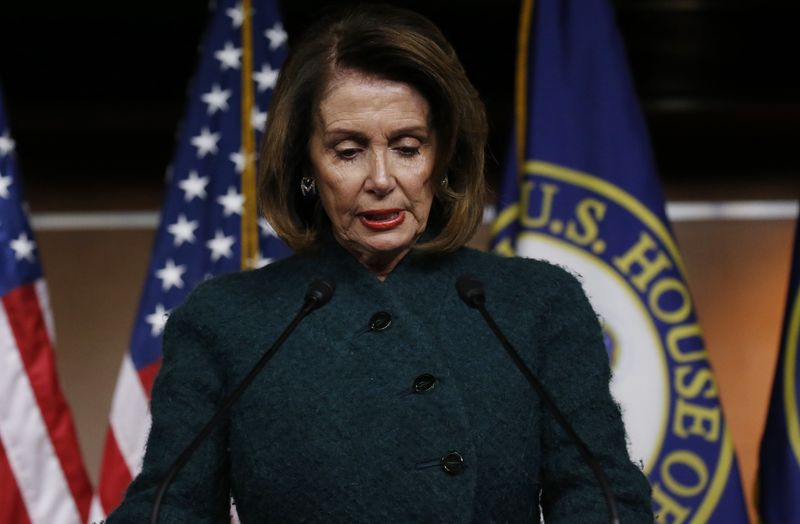By Dustin Volz
WASHINGTON (Reuters) - Congressional Democrats introduced legislation on Wednesday that would provide more than $1 billion to boost cyber security of U.S. voting systems, and Vice President Mike Pence defended the administration's efforts to protect polls from hackers.
The measure followed warnings on Tuesday from U.S. intelligence officials that midterm races in November are likely to see renewed meddling from Russia and possibly other foreign adversaries.
"We cannot let the Russians laugh about and take joy in the success they had in the last election," Nancy Pelosi, the Democratic leader in the House of Representatives, told a news conference. "Their goal is to undermine democracy."
Lawmakers have introduced several bills, some with bipartisan support, to bolster election security since the 2016 polls in which Republican Donald Trump was elected president. None have become law.
The new bill is the most comprehensive to date and is aimed at bolstering protection for the midterms and subsequent elections. It has no Republican co-sponsors in the House, which the party controls, and is therefore unlikely to succeed.
Pence, speaking at an event hosted by the online news site Axios, said Americans could trust the 2016 election results and that it was an "ongoing effort" of Trump's administration to protect election infrastructure.
He also incorrectly said it was the "universal conclusion" among intelligence agencies that Moscow's efforts had no impact on the 2016 election outcome.
The agencies said in a January 2017 report that no assessment was made about the impact of Russian meddling but that Russia used hacking and propaganda to try to tilt the election in Trump's favor. Russian President Vladimir Putin has denied this.
A Pence representative did not respond immediately to a request to clarify the discrepancy between Pence's comments and the intelligence assessment.
The Democrats' Election Security Act would allocate $1 billion in grants, overseen by the U.S. Election Commission, this year to help states buy voting machines that incorporate backup paper ballots, hire security staff and conduct risk assessments.
It would provide up to an additional $175 million in 2019, 2021, 2023 and 2025, for a total of about $1.75 billion.
The measure would create a $20 million grant program for states to perform post-election audits. It would also require the Department of Homeland Security to expedite security clearances for state election officials and direct the president to develop a strategy to guard U.S. institutions, including elections, from cyber attacks and influence operations.
The department said last year 21 states had experienced initial probing of their systems from Russian hackers and a small number of networks were compromised.
Virtually all 50 states have taken steps since the 2016 election to purchase more secure equipment, expand the use of paper ballots, improve cyber training or seek federal assistance, according to groups that track election security.

However, Congress has not provided more money or support and lawmakers have failed to allocate $400 million in leftover election improvement funds pledged 16 years ago.